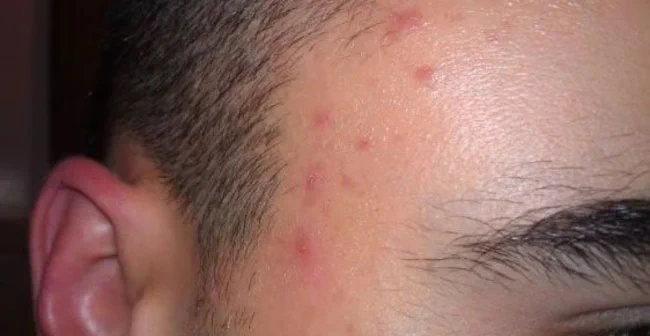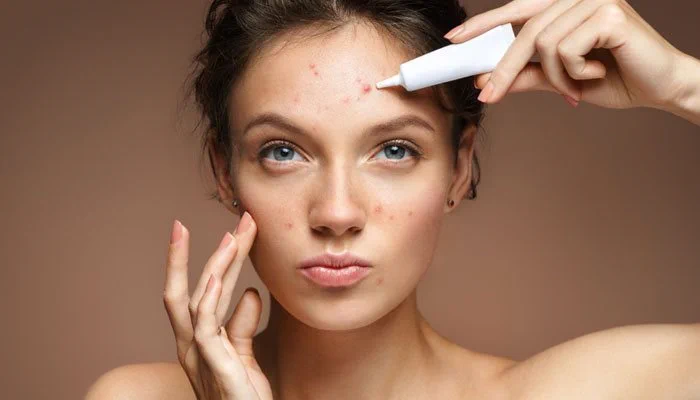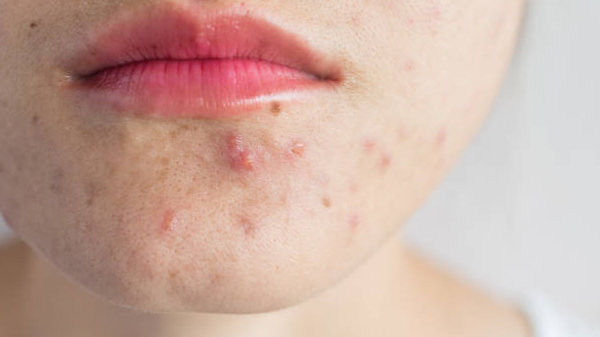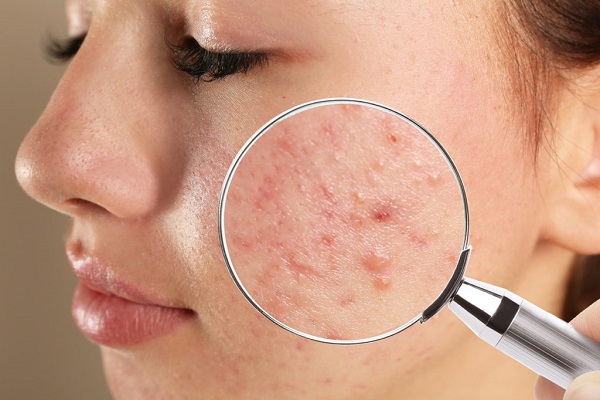Hot liver can cause “blazing”, easy anger and tension leading to acne on the cheeks. Or respiratory problems such as weather allergies, colds, weak lungs can also cause acne on the cheeks. One thing in particular is that liver acne tends to occur more on the left while lung acne tends to occur more on the right cheek.
The condition of acne on the face often occurs in the following 7 positions, experts also point out the reasons why acne appears:
1. Acne at the gallbladder point (Thai Duong)

This is a sign of unstable gallbladder, for example, insufficient bile secretion. Eating too much processed food or fatty foods such as: animal intestines, beef… makes the gallbladder have to work too much, causing acne at the Thai Duong point. In addition, forcing the gallbladder to work too much also causes hair to turn gray quickly, and eating fatty foods can cause stomach pain.
2. Acne at the forehead and hairline
Acne appearing around the hairline, forehead can be due to digestive imbalance, related to poor diet, irritable bowel syndrome. The forehead is located near the T-zone, which has many oil glands, combined with a layer of makeup that accumulates and clogs the pores, forming acne.

The solution to this situation is to drink plenty of water, balance your diet and sleep at least 7 hours a day. Don’t forget to regularly clean your face to keep the forehead area clean in order to reduce acne.
3. Acne at the lower jaw
This is due to a poorly detoxified blood circulation system. Acne appearing is a sign of weakened immune system and resistance of the body… People who regularly eat processed food or fast food will make the blood detoxification system not work effectively, leading to constipation.

4. Acne on both cheeks
In particular, both cheeks are also common positions for acne. The cause is that the cheek area is often in contact with a lot of dirt from the environment or through habits, touching or the process of wearing masks. However, don’t be complacent because acne is often persistent and occurs on the cheeks, it can be due to many internal organs “calling for help”.

5. Acne on the cheeks
If acne appears concentrated on the cheeks, it could be due to intestinal disorders. This directly affects the excretion and detoxification of the intestinal tract. At that time, patients may often experience symptoms such as bloating, stomachaches, flatulence… accompanied by acne.
6. Acne on the nose
Acne appearing on the nose bridge is due to a hot stomach and unstable digestive system. The hot gas in the stomach rises too strongly causing swollen and painful gums and the mouth often feels dry and burning. Acne appearing on both sides of the nose bridge is related to the activities of the ovaries and the reproductive system.
Taking vitamin supplements will be beneficial for eliminating toxins remaining in the blood. Increasing exercise, making you sweat more helps promote detoxification of the blood circulation. In addition, massage or lymphatic drainage is also beneficial for the detoxification of the body.
7. Acne on the nose
Acne appearing on the nose bridge is due to a hot stomach and unstable digestive system. The hot gas in the stomach rises too strongly causing swollen and painful gums and the mouth often feels dry and burning. Acne appearing on both sides of the nose bridge is related to the activities of the ovaries and the reproductive system.






























